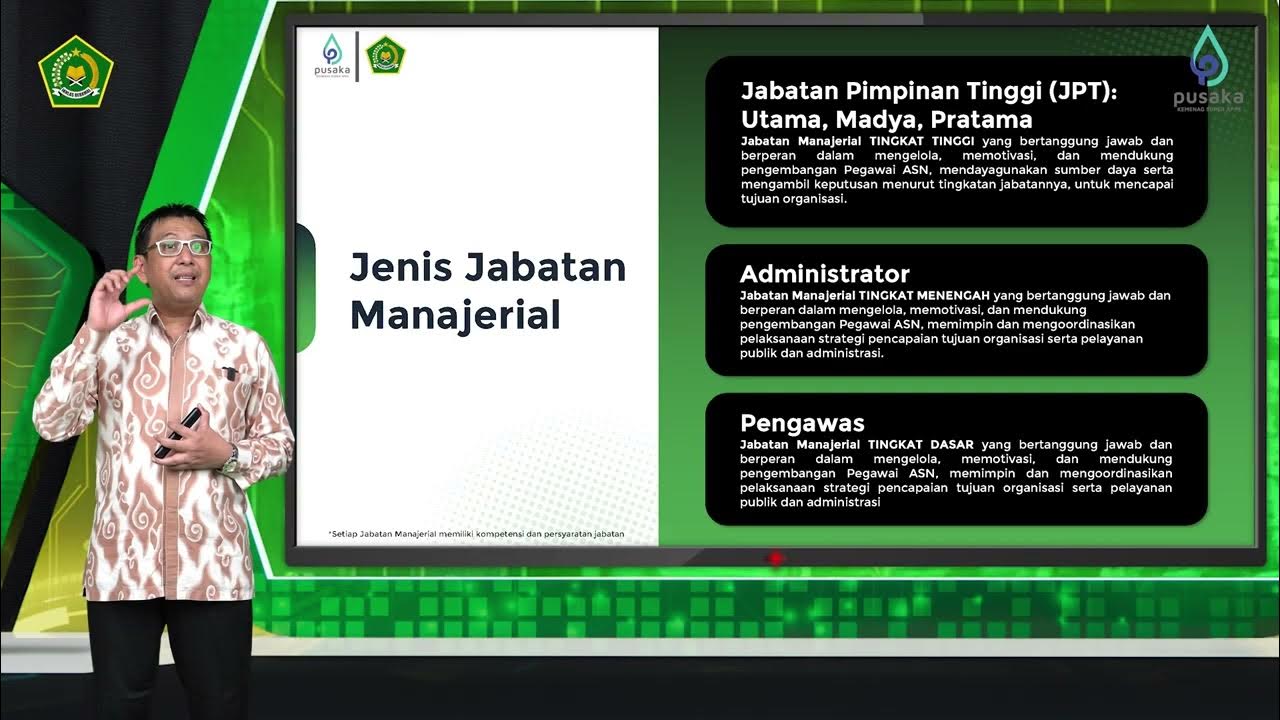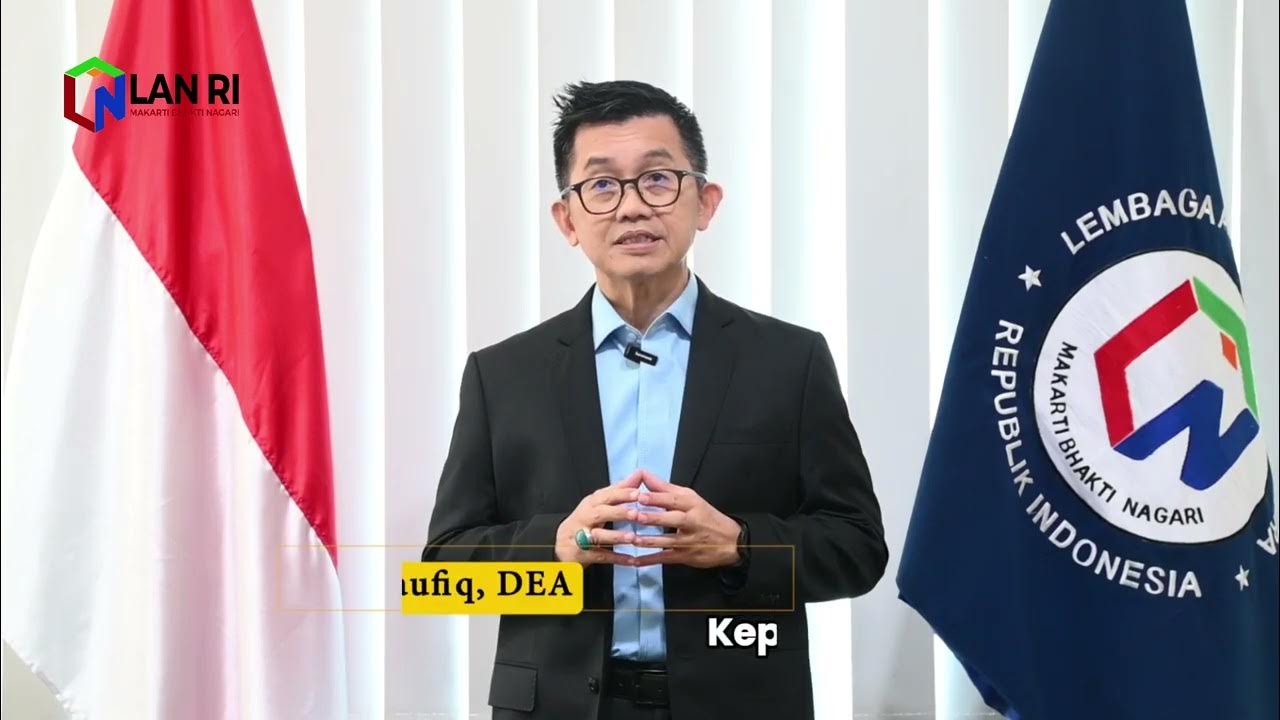Ramai-Ramai CPNS Dosen Mundur Jelang Pelantikan, Ada Apa? | Beritasatu
Summary
TLDRIn this conversation, Zulfikar Ars Sadikin, the Deputy Chairperson of Commission 2 of the Indonesian Parliament, discusses the challenges and responses to the resignation of candidates for the ASN (State Civil Apparatus) positions, particularly in university lecturer roles, before their official appointments. He emphasizes that applicants are aware of the requirement to be ready for nationwide deployment, but some resign due to various personal reasons. He also highlights the process of 'optimization,' where non-qualifying candidates are reconsidered for vacant positions. Zulfikar advocates for improved confirmation mechanisms to ensure candidates are fully committed before being appointed.
Takeaways
- 😀 ASN candidates must be prepared to be placed anywhere across Indonesia, as per the requirements when applying for civil servant positions.
- 😀 The government has implemented an optimalization mechanism to fill vacant positions, including offering roles to candidates who initially did not pass but had high rankings.
- 😀 Before final appointments, candidates should be reconfirmed to ensure their readiness to accept positions, especially in remote locations.
- 😀 Only a small percentage (12%) of the candidates withdrew, and their reasons ranged from personal issues to family obligations and health concerns.
- 😀 Despite the optimalization process, it's essential to ensure the quality of candidates, and those selected should still meet the qualifications required for the roles.
- 😀 The optimalization approach helps fill critical vacancies but should ensure that the chosen candidates are suitable for the role and location.
- 😀 The government’s priority is to ensure there are enough ASN staff to serve the public and carry out government policies.
- 😀 Zulfikar suggests that the authorities (PAN RB and BKN) should confirm with candidates before the final appointment to ensure they are willing to work in the available positions.
- 😀 The optimalization process, though efficient in filling vacancies, should still prioritize the quality of ASN candidates to maintain service standards.
- 😀 Candidates should fully understand that becoming an ASN means they may be posted anywhere across the country, regardless of the location they initially applied for.
Q & A
What is the primary issue discussed in the transcript?
-The primary issue discussed is the resignation of candidates for the ASN (State Civil Apparatus) positions, particularly those selected for the lecturer positions, even before they are officially appointed.
What is the core responsibility of ASN candidates as stated in the transcript?
-The core responsibility of ASN candidates is to be prepared to be assigned anywhere within the territory of the Republic of Indonesia, as they are expected to serve in various regions regardless of their preferences.
How are candidates for ASN positions selected according to the script?
-Candidates are selected based on a ranking system, where those ranked highest are prioritized. If vacancies are available in underrepresented areas, candidates who did not pass but are ranked high enough may be offered those positions.
What is the reason behind some candidates backing out of their appointments?
-Candidates may back out for various reasons, including family matters, health issues, concerns about being placed in faraway locations, or not feeling qualified for the position.
How does the government address the shortage of ASN personnel in specific regions?
-The government addresses shortages by implementing a policy called 'optimization', which fills vacancies with candidates who were not initially selected but are still highly ranked, ensuring that vacant positions are filled.
What is the impact of the candidates who back out on filling vacancies?
-Although some candidates back out, the impact is relatively small—about 12% of the total 16,167 candidates. The rest of the positions are filled through optimization, with a focus on maintaining the quality of candidates.
How can the government ensure the quality of candidates selected through optimization?
-The government can ensure quality by confirming with candidates who were selected through optimization whether they are still willing to accept the positions, ensuring that only those truly willing to serve are placed.
Why is the question of ensuring candidates' willingness to accept placement important?
-It is important to confirm candidates' willingness because ASN positions require a commitment to be placed anywhere in Indonesia, and ensuring this beforehand helps avoid future resignations or dissatisfaction.
What does Zulfikar Ars Sadikin suggest as a potential improvement to the current process?
-Zulfikar Ars Sadikin suggests that before announcing the final selection, candidates should be asked once more whether they are willing to accept the position, especially when it involves being placed in a distant or unexpected location.
What role do ASN personnel play in the Indonesian government according to the transcript?
-ASN personnel are critical in implementing government policies, serving as public servants, and acting as unifiers of the nation, especially in delivering public services effectively across Indonesia.
Outlines

This section is available to paid users only. Please upgrade to access this part.
Upgrade NowMindmap

This section is available to paid users only. Please upgrade to access this part.
Upgrade NowKeywords

This section is available to paid users only. Please upgrade to access this part.
Upgrade NowHighlights

This section is available to paid users only. Please upgrade to access this part.
Upgrade NowTranscripts

This section is available to paid users only. Please upgrade to access this part.
Upgrade NowBrowse More Related Video

Kabiro SDM Pengenalan Jabatan

Presiden Prabowo Umumkan Kenaikan Gaji Guru ASN dan Honorer, Disambut Tepuk Tangan Bahagia

RANGKUMAN MATERI SMART ASN DAN MANAJEMEN ASN

[LIVE] Konferensi Pers Pengangkatan CASN 2024

Kepala LAN Sambutan Penyelenggaraan Orientasi PPPK

Recruitment in Government 101 Series: Selection and Appointment Process (LunChat with CSC S02E16)
5.0 / 5 (0 votes)